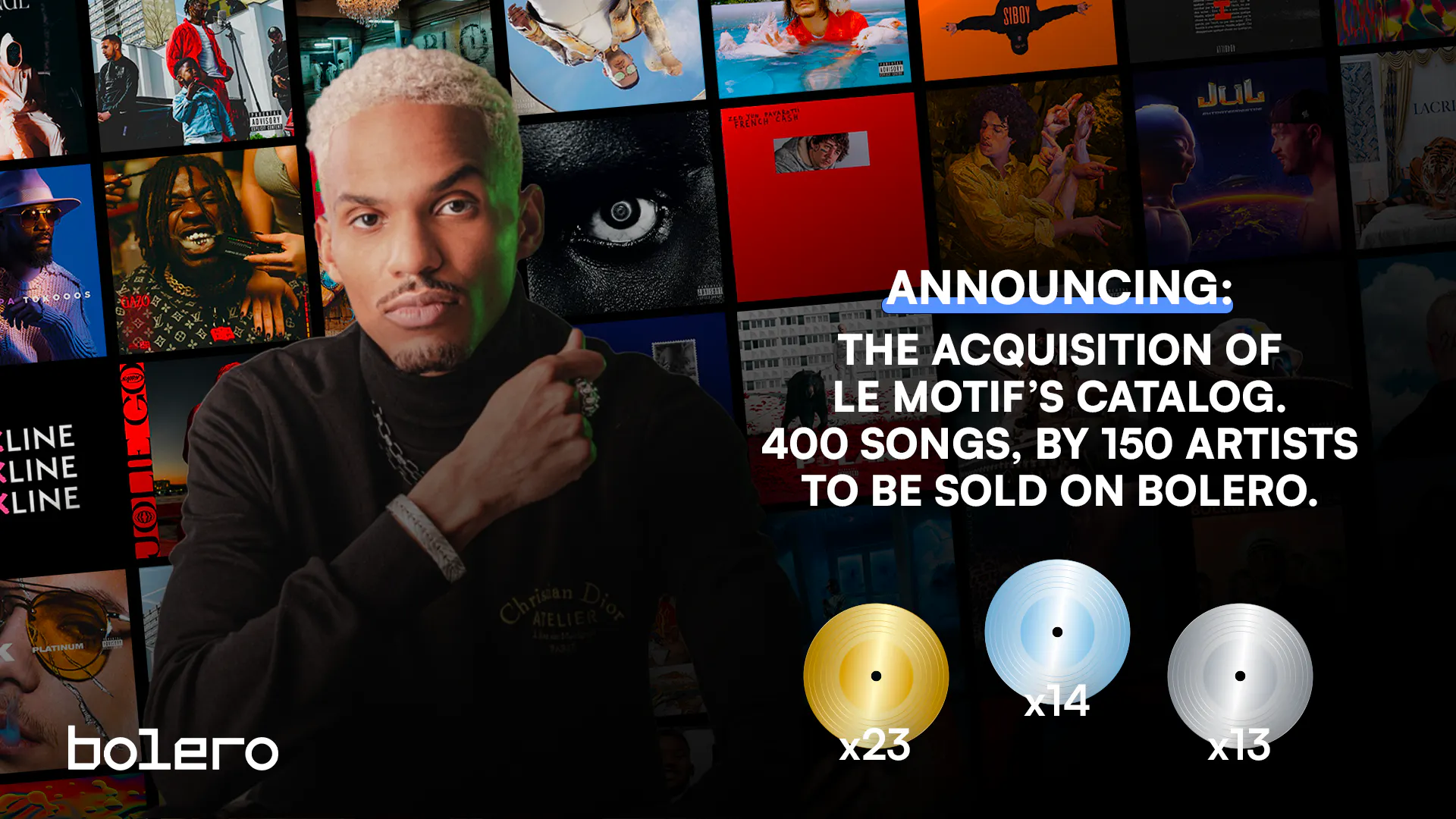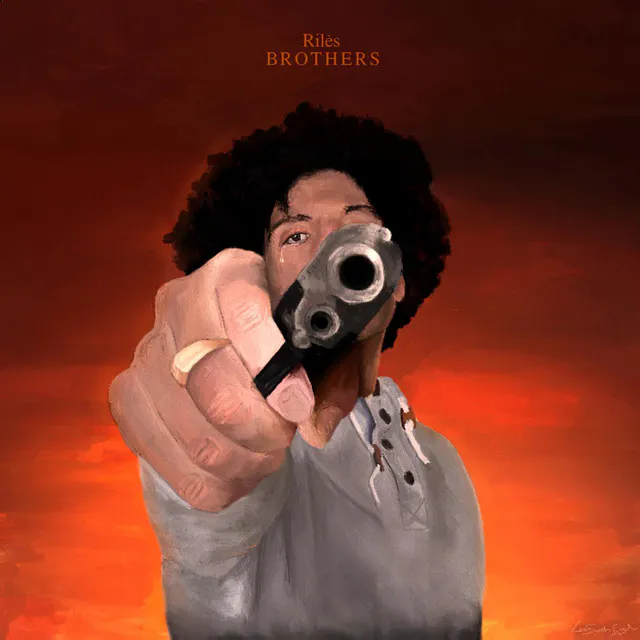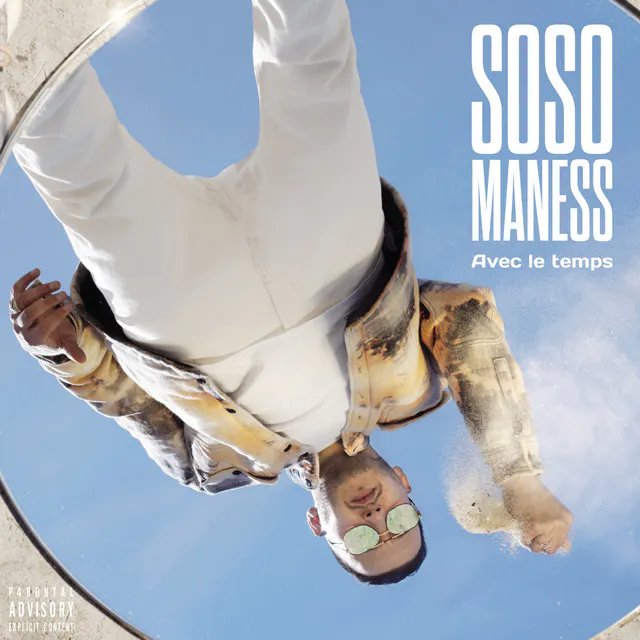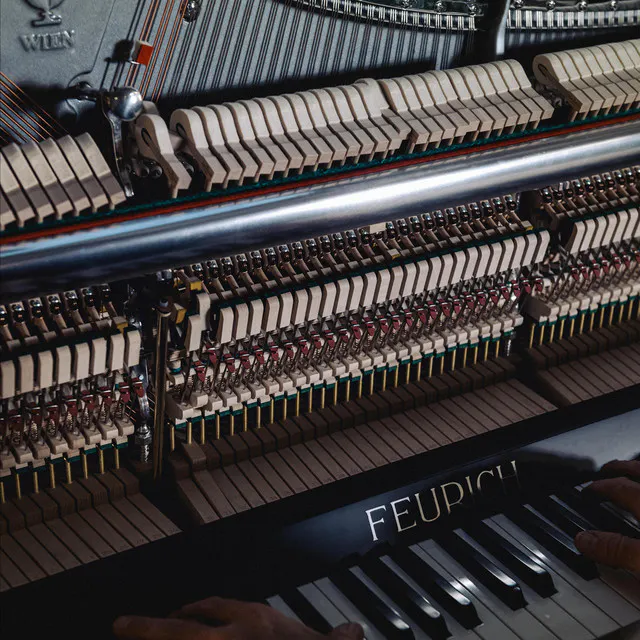
On the $2M fundraising by Bolero in Web3 Music Industry with William Bailey
Conversation
Mar 11,2024 Written by New Society
Bolero, the innovative music platform that tokenizes intellectual property rights and generates returns for Song Shares investors, has successfully raised $2 million amid the challenges faced by artists and Web3 art companies in 2023.
In the face of a bear market that has affected the entire artistic community, Bolero emerges as a beacon of hope. The digital platforms from the Web2 music era appear focused on manipulating minds, harvesting data, and commodifying interactions at any cost. Amidst this landscape, Web3 tokenization by Bolero through Song Shares stands out as the artist-centric solution, aptly described as "A record label for every pocket."
With its unique approach, Bolero stands as a paradigm shift in the realm of music platforms. Purposefully designed to be distinct, it acknowledges the absence of a utopian solution. The challenge lies in merging artistic values with financial investments. How can music artists effectively tokenize and monetize their work through the Bolero platform? What factors contributed to the successful fundraising effort? These questions highlight the intersection of creative expression and financial sustainability that Bolero aims to navigate.
In light of this, we had the opportunity of speaking with William Bailey, Co-Founder at Bolero.
New Society: Could you share some insights about your background and journey?
William Bailey: Certainly. I'm the Founder and CEO of Bolero, a company I co-founded almost three years ago. Prior to this venture, I served as a product manager in an AI company, where my focus was on designing and developing software to enable brands to create conversational assistants, enhancing customer relationship experiences.
During the initial pandemic lockdown, I delved into exploring innovative solutions for the music industry, fueled by my fascination with its business model. Observing friends trying to make their mark in the electronic and hip-hop scenes in France, I decided to explore the possibilities of Web3 during the summer of 2020.
Motivated by this newfound knowledge, I made the crazy decision to leave my job in September 2021. Subsequently, I enrolled in Le Wagon, a reputable coding boot camp, with the intention of building something at the intersection of blockchain technology and the music industry. At that point, I connected with Arthur, now Bolero's co-founder and CTO. Together, we were drawn to the idea of creating a fresh revenue stream for artists and creators based on their intellectual property and asset organization.
Over the next two years, we experimented with various use cases, exploring aspects like ticketing, brand monetization, and fan engagement monetization. By January 2023, we had honed in on our final product, which we named Song Shares. This approach involved legally and technologically fractionalizing music rights, embedding them into tokens known as Song Shares, and that's why Bolero is now allowing anyone to invest in music by buying and selling these tokens representing music rights.
In 2023, our technology enabled the successful tokenization of 25 different songs, providing producers, composers, and publishers with a unique avenue to generate new revenue without sacrificing creative control. Importantly, it democratized a novel investment opportunity for music fans and neophyte investors seeking fresh asset categories.

The significant milestone came in January 2024 when we achieved a product-market fit by seamlessly combining Web3 technologies with our product experience, and therefore releasing the largest tokenized music catalog of French hip-hop with renown producer Le Motif.
New Society: Fascinating! Could you delve a bit deeper into this expansive music catalog?
William Bailey: Absolutely. This development is monumental as it significantly impacts numerous creators, establishing a new benchmark for artistic business models. Moreover, it serves as a catalyst for what we perceive as the next revolution in the music industry— the democratization of music rights. We've witnessed the eras of CDs, MP3s, and streaming, and now we believe that the industry's next evolution lies in the realm of Web3.
It's more than 400 songs from the hip-hop scene currently being tokenized on the Bolero platform, among which many are big hits.
New Society: Maybe not everyone understands how IP in the music industry works. Could you please share more about its intricacies and how it relates with Song Shares?
William Bailey: So when we discuss music IP, it's essential to recognize the dual facets. Picture it as a vinyl record; on one side, you have what's known as master rights, safeguarding the actual version of the record. Flipping the metaphorical vinyl, you encounter the other side — publishing. This facet safeguards the lyrics and the composition of the record, and companies known as publishers are responsible for exploiting these publishing rights.
New Society: So these two sides are distinct?
William Bailey: Exactly. Anyone, be it an individual, a company, a publisher, or a producer holding music rights, can tokenize them without restriction.
New Society: And if a publisher decides to tokenize the publishing IP rights, it doesn't interfere with the master rights right?
William Bailey: That's correct. Since they protect different aspects of the IP, there is no interference. For instance, when a record is played, the revenue generated stems from these two sources. Streaming, CD purchases, and vinyl sales contribute to revenues for master right holders, while playing the song in a nightclub or on the radio generates revenue for the publishing right holders. We actually wrote an article on this topic which you can find here.
New Society: You've mentioned this extensive catalog of hip hop artists. Is there a specific reason that we're focusing on hip-hop artists?
William Bailey: Actually, it wasn't entirely a strategic decision on our part; rather, it presented itself as a significant opportunity. Since 2020, we've been connected with the prominent Belgian producer named Le Motif, renowned for collaborating with headlining stars in the hip hop scene over the past five years. In a partnership deal that was finally kicked off in 2024, Le Motif chose Bolero's platform to sell over 400 songs from 150 different artists. This alignment perfectly resonated with our ambition of making Bolero the largest decentralized music rights exchange platform globally.

And as a French team, it's particularly gratifying for us to witness French innovators taking the lead in the music industry. The extensive catalog, comprising well-known hits in French-speaking countries, is going to set new standards, and on top of it, it will influence other artists.
New Society: It's like in the art space. A lot of new artists started to mint on SuperRare because they see other huge artists were minting on it and were doing pretty well in sales. That was 2020 I think.
William Bailey: Exactly. It's the confirmation bias.
New Society: Have you explored collaborations with electro artists, given more notable presence of Web3 adoption in that genre, with figures like Agoria in France and Dan Ghenacia from Portugal?
William Bailey: I think while the electronic music scene has seen some adoption of Web3, many electro artists are primarily live performers, and only a few dominate traditional streaming platforms. Our goal was to bring music tokenization into the mainstream, and we saw a pivotal moment in tokenizing the music rights of the top 15 artists from 3 different countries.
This shift signifies a move toward mainstream adoption, transcending the crypto communities on Twitter and reaching the broader audience. It's an exciting frontier that opens up new possibilities, and despite the skepticism in Web3 during 2023, the market is proving naysayers wrong. Anticipating a bullish trend in 2024, we believe it's the time for mainstream adoption, incorporating Web3 into economic and innovation standards — a perspective that transcends anything we've seen in the past.

New Society: Moving on, from your experience, what drives popular artists and producers to tokenize their music rights, especially considering their financial stability?
William Bailey: Well, beyond monetary considerations, the decision often hinges on whether one is motivated by financial gains or a genuine interest in the philosophical shifts occurring. Working with Le Motif was particularly enriching for us. He not only possesses a layer of influence in the French music industry but has also been an educator, guiding artists on new business models. His involvement adds substantial leverage to our mission of spreading awareness.
Returning to practical considerations, to truly democratize the use case of music tokenization and establish a standard, one must be a risk-taker and an outlier, embracing new technologies consistently, not just for a one-time endeavor. This is why our partnership with Le Motif holds immense significance — the assets he contributes represent not just songs but the culmination of his entire successful career.
New Society: It's like tokenizing Marvel movies in the movie industry, congratulations on the collaboration with Le Motif! Have you encountered any significant challenges in innovating the tokenized music industry?
William Bailey: The primary challenge lies in having a clear vision and target while confronting numerous execution paths. Uncertainty surrounds the scalability of the initial product iteration for a broader market. Beginning with early adopters and niche customers, there's a need to iterate on the entire product to ensure that when addressing thousands of customers, the value proposition is at its sharpest.

New Society: And what has been a particularly rewarding experience for you?
William Bailey: I would say 2 aspects stand out. Firstly, despite the market's uncertainty about the future of Web3, investors and thought leaders within the Web3 ecosystem acknowledged the uniqueness of our model. Secondly, after refining the product and crafting the user experience, artists who initially rejected our proposal a year ago approached us with a change of heart, expressing interest in collaboration. That's truly gratifying.
New Society: This we can relate. We had similar experiences when we were producing the New Society Book. Out of curiosity, could you share the current audience distribution of Bolero? What drives them to interact with the platform?
William Bailey: So I would say approximately 60% of our audience comprises music fans seeking new experiences and innovative ways to connect with their favorite artists. The second-largest segment consists of what we term "neo investors," individuals aged between 25 and 40 interested in exploring new asset categories for both yield and entertainment, as many traditional assets may seem mundane.
New Society: Nice blend — a mix of investing in musical tastes and financial assets. And how about the Web3 audience?
William Bailey: It's a journey. Interestingly, the pure Web3 audience isn't the majority. Some individuals transition into the neo investors category as they become crypto enthusiasts. And some discovered Bolero through influential artists already active in the Web3 ecosystem. Conversely, the remaining users and clients are music lovers who find investing in artists through song shares to be a truly fun experience.
New Society: Can you provide insights into the expected returns if one invests in song shares on Bolero? What range should investors anticipate?
William Bailey: Sure. Taking the last 25 songs released on our platform as an example, investors can enjoy an annual return on investment of approximately 10.8%. For instance, a hundred-dollar investment could yield between $5-$15 a year.
New Society: That's quite promising. Do all releases consistently generate profits, or does it vary?
William Bailey: No financial advice. 😂 But so far all releases have been profitable. The platform is transparent, we provide users with metrics and statistics for each song to empower them to make informed decisions.

New Society: And do you have a personal favorite among the releases on the Bolero platform?
William Bailey: That's a tough question, ahah. I genuinely appreciate each song we've published, but if I had to choose, it would likely be the upcoming release. There's always a sense that the next one is the best one.
New Society: And how do you work with so many artists at Bolero? Do you have an artist team?
William Bailey: So yes we have a music team, who's in charge of establishing close connections with the teams managing artists on the artist side. So they're responsible for understanding the styles, objectives of each artist and the challenges faced by the artists. Based on this analysis, we identify how song shares can be leveraged to achieve these objectives, bridging artistic consciousness with financial acumen. The music team has two core members, supported by a group of advisors who are also shareholders, contributing to various aspects of the business.
New Society: Returning to the fundraising aspect, we all know that 2023 has been a challenging year for art-oriented projects to secure funding, even right now with the market showing signs of recovery. How did you navigate this, and what do you believe investors are putting their money into?
William Bailey: Primarily, investors are attracted to the sheer size of the market, with approximately 41.5 billion USD worth of music IP globally. We project this market to grow to 60 billion in the next five years. Our team's extensive experience in the crypto space, having weathered bull runs and bear markets, positions us well to navigate these cycles. Our focus on product development and delivering value to partners and customers has also been a key factor in proving our worth.
Additionally, investors are drawn to our unfair advantage, with the involvement of some of the world's biggest music writers, renowned producers, and financial experts from hedge funds and family offices.
New Society: That's impressive. And what are your goals with the fundraising?
William Bailey: Our primary objectives are to list 500 songs on the platform and acquire 50,000 customers. Additionally, we aim to develop our B2B offering, recognizing the significance of engaging communities, club deals, family offices, and various entities within the music industry. This expansion aims to cater to those interested in specific pieces, offering a compelling value proposition for IP monetization.